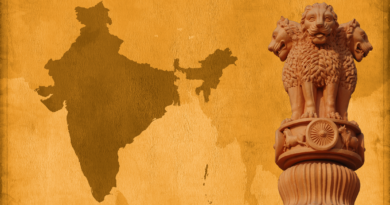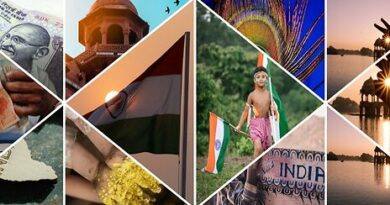A western lens on Indian Affairs
The US Commission on International Religious Freedom (USCIRF) on Monday, the 26th April 2022, came out with its Annual Report for 2022, listing India as a ‘Country of Particular Concern (CPC)’ – third time in a row.
India is among 15 countries flagged by the USCIRF for religious freedom concerns. The other countries are Afghanistan, Burma, China, Eritrea, Iran, Nigeria, North Korea, Pakistan, Russia, Saudi Arabia, Syria, Tajikistan, Turkmenistan and Vietnam.
The report notes that the “religious freedom conditions in India significantly worsened during 2021” blaming the Government of promotion and enforcement of policies negatively affect the religious minorities.
In this regard, the remarks made by India’s Minister of External Affairs, Mr. S. Jaishankar at a news Conference in the US on 13th April 2022 are relevant:
“People are entitled to have views about us but we are also equally entitled to have views about their views and about the interests and the lobbies and the vote banks which drive that……we also take our views on other people’s human right situation including that of the United States”
These comments, although made in context of human rights situation are equally relevant with regard to USCIRF report on Religious Freedom in India and their views about it. A vibrant democracy like India with population of over 1.3 billion comprising of various religions and beliefs is bound to have issues like these with a vast section of the society having diverging views and opinions about the human rights and religious freedom of a particular section of the population.
The trouble however starts when these views are guided by the vested interest, depending on the political affiliations – rightist or leftist, these interests have and facts and policies are then highlighted in a twisted and ‘out of context’ mode – it is here that the CAA becomes an ‘anti- minority’ law and NRC is projected as a tool to oust the religious minorities from the country. A particular section of media and political-intellectual class feeling marginalised in the current political establishment has also been very active in promoting the theory of victimisation and ‘non-tolerance’, guided more out of its desire to stay in limelight than any genuine concern to the plight of victims.
While the official response from Indian Government on USCIRF report is yet to come, it is very unlikely that the Government authorities in India are going to take any note of it, given that the Government of India in 2020 had labelled the USCIRF as ‘biased’ and ‘tendentious’ and calling it the “Organisation of Particular Concern” citing its low credibility.
The fact that USCIFR doesn’t find anything worth reporting about the religious freedom or hate crime conditions in Israel which is often in news for its high-handed approach towards the Muslim minorities in its own territory as well as in Palestine, or in France which passed an ‘anti-radical’ law in 2021 makes one wonder if a selective approach is being followed to single out and target the countries not submitting to the US hegemony or that are not towing the US line on international diplomacy. What else could explain this more clearly than the fact that while Russia with reported hate crimes of 833* in the year 2020 has been recommended to the listed as ‘Country of Particular Concern’, the report is completely silent on the US with more than 11000* reported hate crimes in 2020 or the UK with more than 125000* reported hate crimes in 2020
What is more appalling is that, in context of India, the panel in its Report wants the US Government to ‘Advance Human Rights of all religious communities in India and promote religious freedom, dignity and interfaith dialogue freedom, dignity, and interfaith dialogue…’. It makes one wonder whether another statute like FATCA or CAATSA is coming in US which will empower the US Government to intervene and ‘advance the human rights of various communities’ in other Countries?
To conclude, these word of EAM Mr. S. Jaishankar which he spoke during the course of ‘Raisina Dialogues 2022’ summit at New Delhi this week are important. He said that “we have to be confident about who we are. It is better to engage the world on the basis of who we are. This idea that others define us, somehow we need to get the approval of other quarters, I think that is an era we need to put behind us”.
(*Source – Organization for Security and Co-operation in Europe (hatecrime.osce.org)
*The views expressed are of the author’s personal and not of the WFY Magazine as the magazine’s stand is not opinionated





You should take part in a contest for one of the finest websites on the internet. I am going to highly recommend this blog!
I ran into this page accidentally, surprisingly, this is a amazing blog :-). The site owner has carried out a superb job of putting it together, the info here is really insightful. You just secured yourself a guarenteed reader.
Top site ,.. amazaing post ! Just keep the work on !